NIDDK Training Program Unlocks Potential of Young Scientists
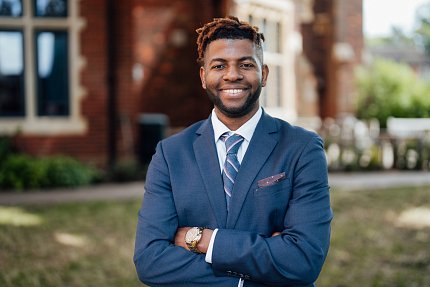
Photo: niddk
More than 90 aspiring scientists recently gathered at NIH for a two-day symposium, putting the talent of the next generation of medical researchers on full display. The students were participating in an annual program sponsored by the National Institute of Diabetes and Digestive and Kidney Diseases (NIDDK).
The training program, Short-Term Research Experience Program to Unlock Potential, or STEP-UP, is a summer internship open to high school and undergraduate students. STEP-UP provides mentored, research training that culminates in a summer symposium at NIH, where participants present their research, attend professional development workshops, and network with peers and NIDDK staff.
At this year’s symposium, 22 STEP-UP alumni returned to serve as role models to current students, providing advice on navigating their academic and career journeys. Sharing their own professional achievements, the alumni exemplified the value of such early-training programs.
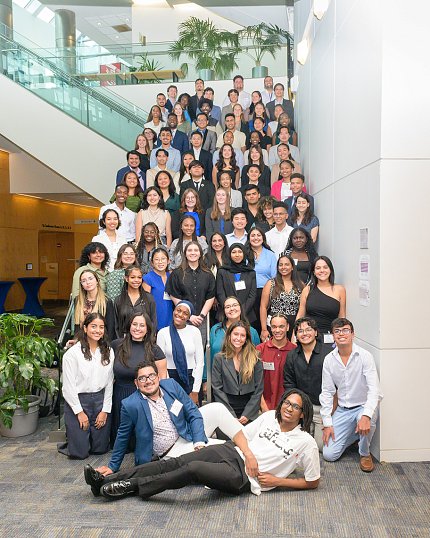
Photo: niddk
“We’re heartened to know NIDDK’s investments in training opportunities for high school and undergraduate students are paying off,” said NIDDK Director Dr. Griffin Rodgers, who delivered opening remarks.
Many STEP-UP alumni pay it forward by mentoring current program participants. Dr. Nathalie Fuentes, a five-time STEP-UP alumna who attended the symposium, mentors STEP-UP students every summer. She has had more than 10 mentees, some of whom are now in Ph.D. programs, pharmacy or medical school.
.“My students are my pride and joy. They reflect who I am,” said Fuentes, who is now a senior scientist in biopharmaceutical development at AstraZeneca. Fuentes is also grateful to her own STEP-UP mentors. “Thanks to them, I learned what research was all about.”
Originally from Puerto Rico, Fuentes joined STEP-UP in high school. Her public school did not have a science lab, but she gained authentic research experience through STEP-UP at the medical sciences campus at the University of Puerto Rico.
“Doing STEP-UP close to home was one of the reasons I applied in the first place. I don’t come from a lot of resources,” she explained.
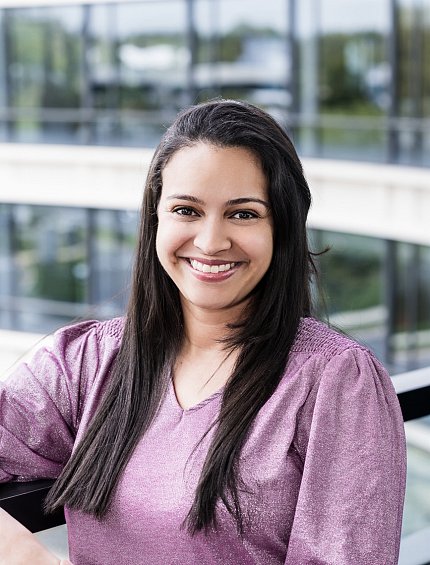
Photo: niddk
STEP-UP is designed to provide opportunities to students regardless of their zip code, by working with coordinating centers throughout the U.S. and its Pacific territories.
For STEP-UP alumna Mata’uitafa Temukisa Solomona-Faiai, growing up in Leone, American Samoa, meant having limited access to state-of-the-art research facilities, until she discovered STEP-UP. Solomona-Faiai participated in the program twice while attending Leone High School, and twice while in college in Honolulu. After getting her master’s degree in Washington D.C., she returned to Leone for two years to work as an epidemiologist for the American Samoa Department of Health and mentoring high school STEP-UP students.
As a Ph.D. candidate at the Yale School of Public Health, Solomona-Faiai now studies the cardiometabolic health of adolescents in American Samoa. At the STEP-UP symposium, she presented her dissertation research plan on how diet, physical activity, depression and body image affect obesity, diabetes and hypertension. Her research is personal to her, because adolescents in American Samoa are disproportionately affected by cardiometabolic outcomes and she knows firsthand what it’s like to be an adolescent there. Her mother, who recently passed away, was diagnosed with heart disease and diabetes at a young age.
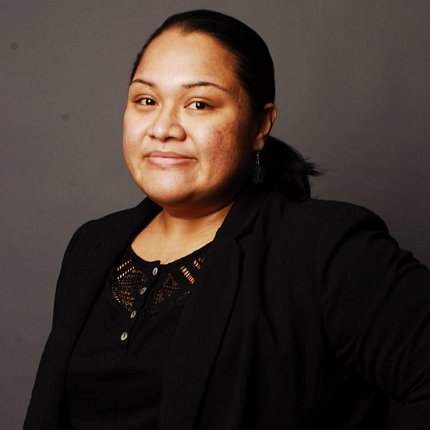
Photo: niddk
Another STEP-UP alumnus presenting research at the symposium was Jude Tunyi, whose interest in science began as a child in Cameroon. He recalled the poor access to medical care there and standing in long lines to see the only doctor in town. After his family moved to the U.S., he was struck by how easily they could visit a doctor. Volunteering in a hospital during high school further inspired his interest in medicine.
“It wasn’t until STEP-UP that I started doing research and wondered if a pathway existed that involves both medicine and research. And lo and behold, I’m currently doing a dual degree with hopes to become a physician-scientist,” Tunyi said. He is earning a medical degree at Ohio State College of Medicine, and a Ph.D. through the NIH OxCam program, where training is split between NIH and Oxford University.
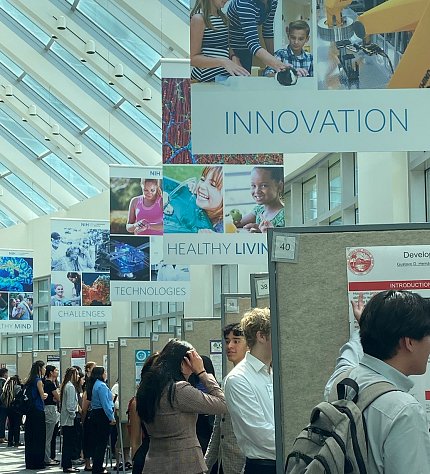
Photo: niddk
Tunyi participated in STEP-UP as an undergraduate at the University of Washington in Seattle, where he worked on building computational models that can lead to longer-lasting insulin. After STEP-UP, he completed a two-year postbaccalaureate program at the NIH.
Since 2000, more than 1,300 high school and 1,000 undergraduate students have participated in STEP-UP. Like Fuentes, Solomona-Faiai, and Tunyi, many have gone on to pursue advanced degrees and continued to participate in research.
“NIDDK already supports many of the best minds in research and constantly strives to develop new scientific talent,” said Rodgers. “The success stories of our STEP-UP alumni reaffirm our longstanding commitment to providing training programs to help build and foster a robust scientific workforce.
